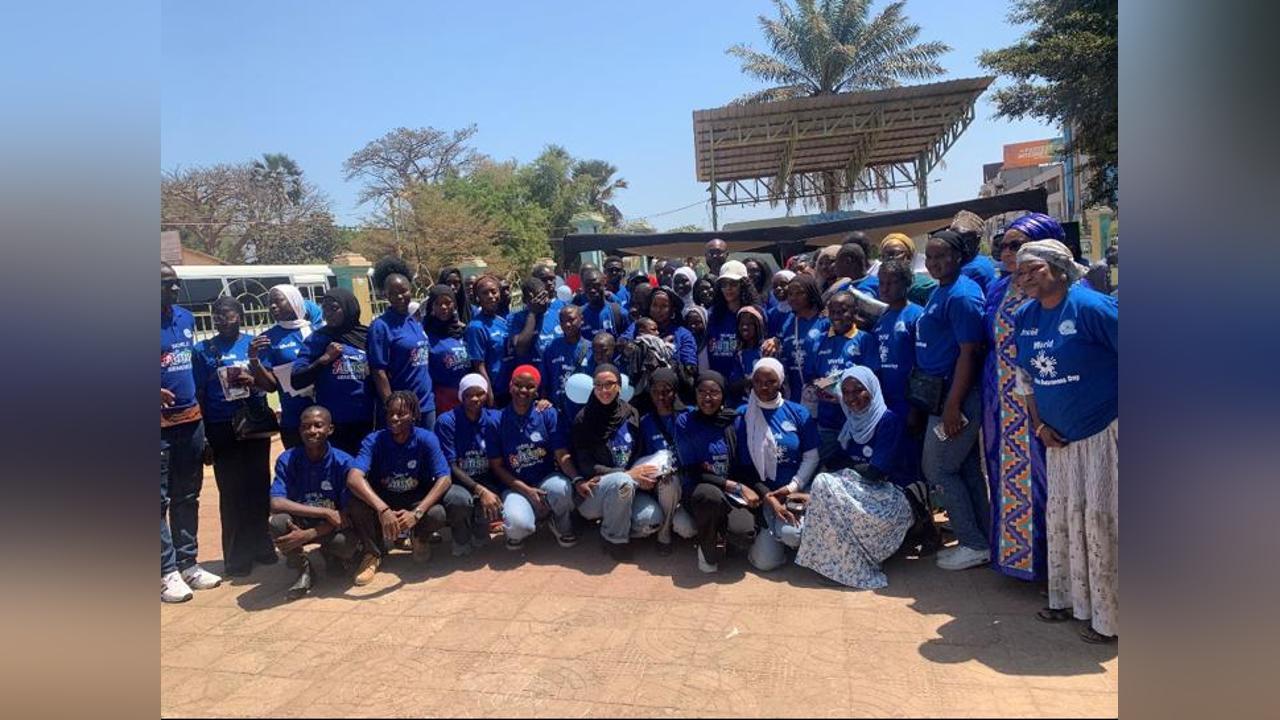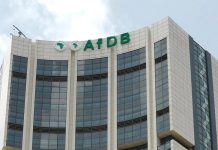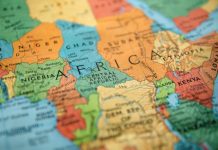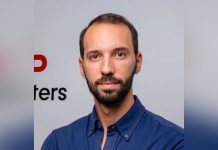Africa-Press – Gambia. The Gambia Autism Support and Advocacy Network (GASAN) has over the weekend celebrated the first-ever World Autism Awareness Day 2025 in the Gambia held at the youth monument in Westfield. The celebration brought together individuals with autism, their families, advocates, and key stakeholders in a collective effort to raise awareness and promote inclusion.
The theme of the celebration was “Celebrate Differences”.
Autism is a spectrum disorder (ASD), which refers to a broad range of conditions characterised by challenges with social skills, repetitive behaviours, and speech, and nonverbal communication.
Autism looks different for everyone, and each person with autism has a distinct set of strengths and challenges. Some autistic people can speak, while others are nonverbal or minimally verbal and communicate in other ways. Some have intellectual disabilities, while some do not. Some require significant support in their daily lives, while others need less support and, in some cases, live entirely independently.
Among the most common co-occurring conditions are: attention-deficit/hyperactivity disorder (ADHD), anxiety and depression, gastrointestinal (GI) disorders, seizures, and sleep disorders. Anybody can be autistic, regardless of sex, age, race, or ethnicity. Fatoumatta Bah-Barrow, the First Lady of the Gambia, said Autism is not a weakness. It is a difference, and in those differences, they find creativity, resilience, focus, and extraordinary potential.
“We will work closely with the Organisation to educate our communities, address misinterpretations, and support important changes for the Government to Consider,” she added.
Isatou Keita, the Chairperson of the Gambia Autism Support and Advocacy Network (GASAN) said today, to them, it’s more than just an event. But It is a moment of purpose and commitment, a time for them to celebrate the unique strengths, talents, and potentials of individuals on the autism spectrum, to also raise awareness and promote a better understanding of autism across the country, their families, schools and even in their communities, a time for them also to be able to discuss the mess and break down barriers that look at other issues that affect those living with autism in The Gambia, the aspect of stigma with empathy and also truth, but most importantly, to stand together as a nation to build a more inclusive Gambia, “Which is why our theme is to celebrate differences at Gazan, our vision is simple but very powerful: A Gambia where every child is given the chance to thrive, regardless of their neurological differences, where children with autism are not only accepted but truly embraced and empowered as well.”
She said they know the journey is not easy. Many families will struggle to access the support they need. But that is why GASAN exists to support and work hand in hand with families on this journey.
“But we cannot do all of these things alone, and that is why today we are all here together. So I call on each one of you here today, whether you are a policy maker, a parent, a teacher, a journalist, or even a friend, to be part of the movement, lend your voice and share your support”.
Chairperson Keita added that: “Everything that goes towards helping Today’s program will be reached with reflection to us, inspiration, and also some sort of connection.”
Harriet Bass, the Representative from the Ministry of Gender, said today, compared to 17 years ago, the global movement has expanded beyond awareness to actively promote acceptance, appreciation, and inclusion, recognising the contributions autistic people make to their communities and the world at large.
“Being autistic does not have to stop you from having a good life as it would amount to discrimination; autistic people have things they’re good at as well. Autistic people have the right to a dignifying way of life like any of us, for example, being able to socialise and make friends.”
Dorren Dia, the Director of I Promise Care, said children with special needs, autism, and other disabilities, are not like the rest “We’re not like one another. Every one of us is different in our ways, but we are raised to believe that there’s a normal and not normal way of doing things in life. For people like me, we don’t believe in the words normal and not normal. We say typical and atypical because they’re just different, just because they’re not like you and I do not mean that they’re not special, that they’re not important or don’t matter.”
Adding that being in The Gambia, she learned that children with disabilities are not accepted, they’re not respected, they’re not loved as much as a typical child, because they’re deemed worthless or unteachable, and this is not me just assuming. “These are things that I’ve been told from parents with children with disabilities schools that won’t accept them because they’re not like the rest of the students.”
For More News And Analysis About Gambia Follow Africa-Press






